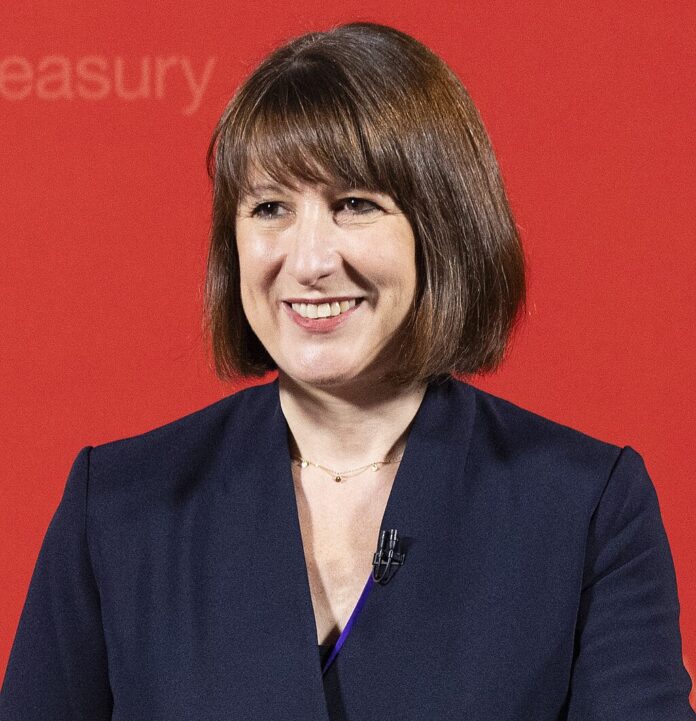Chancellor Rachel Reeves faces criticism from business leaders over tax hikes, with the food giant ceo accusing her of making Britain “uninvestable” as she insists there’s no alternative to the measures
Rachel Reeves, the Chancellor of the Exchequer, is facing a fierce backlash from the business community after her autumn Budget, which included significant tax hikes aimed at tackling the UK’s fiscal challenges. The criticism reached a crescendo at the Confederation of British Industry (CBI) conference, where business leaders accused her of making the UK an unattractive prospect for investment. In a direct confrontation with her critics, Reeves defended her proposals, insisting that the government had no other choice but to increase taxes.
During her speech at the CBI conference, Reeves stood firm in the face of mounting pressure, emphasising that the government’s fiscal policies were necessary to stabilise the economy. “I have heard a lot of feedback about my Budget, but not any alternative suggestions,” she said, making it clear that the proposed tax increases were not just inevitable but essential for long-term financial stability. The Chancellor also reassured businesses that they would not face another Budget like this before the next general election, acknowledging the burden that the tax hikes could place on the economy.
Despite Reeves’ reassurances, the backlash from business leaders, including a vocal criticism from a food giant CEO, was severe. The CEO accused Reeves of making Britain “uninvestable,” arguing that her policies would deter businesses from expanding or launching new ventures in the UK. The concerns were echoed by several others, with many citing the increase in national insurance contributions as a key factor in diminishing the UK’s attractiveness as an investment destination. Labelled a “jobs tax” by critics, the rise in national insurance has been described as an additional financial strain on companies already facing uncertain economic conditions.
Embed from Getty ImagesThe Chancellor’s decision to raise taxes is part of her strategy to tackle the UK’s growing debt and fiscal deficit. She has framed the move as a necessary step to provide a “rock of stability” for businesses, ensuring that they can plan for the future without the looming threat of financial instability. However, this argument has done little to quell the frustration from the business community, which has long called for measures that encourage investment and support economic growth.
At the heart of the criticism is a perceived disconnect between the government’s fiscal policy and the needs of the private sector. Business leaders argue that raising taxes, particularly during a period of economic fragility, could stifle growth and lead to job losses. With inflation, energy prices, and other costs rising, the last thing many businesses want is an additional financial burden. The situation has prompted calls for the government to reconsider its approach, with some suggesting that the UK could benefit from targeted support for businesses rather than blanket tax increases.
SKY NEWS
Chancellor Rachel Reeves has pledged that there will be no further tax increases or borrowing for the remainder of the Labour government’s term. Speaking at the Confederation of British Industry (CBI) conference, Reeves assured business leaders that her controversial budget, which included a rise in employers’ national insurance contributions and the national minimum wage, would be a one-time measure. She emphasized that the budget aimed to stabilize public finances and services, ensuring no need for similar austerity-like measures in the future.
Reeves defended her policies despite significant backlash from major UK businesses, which warned that the measures could cost millions, lead to higher prices, and result in job cuts. Additionally, independent forecasts from the Office for Budget Responsibility suggested the budget could lead to higher-than-expected inflation, further intensifying the criticism.
Despite the opposition, Reeves remained firm, stating that the £22 billion “black hole” in public finances required difficult decisions, and she argued that there was no viable alternative to her approach. She acknowledged the criticism but expressed that the feedback lacked concrete alternatives, reinforcing her commitment to fiscal responsibility in the face of challenging economic circumstances.
THE TELEGRAPH
Rachel Reeves’ relationship with UK business leaders has deteriorated, with critics arguing that her recent Budget policies have irrevocably damaged trust. Speaking at the Confederation of British Industry (CBI), Reeves attempted to soothe tensions, but many in corporate Britain remain dissatisfied after the Chancellor’s budget significantly impacted their bottom lines.
The Budget, which included tax hikes on businesses and a rise in national insurance contributions, has made UK businesses its primary victims. These measures have been particularly damaging for industries already facing rising costs. Critics argue that the Chancellor’s attempt to mend fences by assuring no further tax rises won’t be enough to rebuild trust. Corporate leaders, who felt blindsided by the fiscal decisions, are now questioning whether the government truly understands the challenges they face.
Reeves’ assertion that the difficult measures were necessary to fix a £22 billion public finance shortfall has been met with little sympathy from those who believe her policies will only exacerbate inflation and slow down economic growth. While she has defended her actions as inevitable, many business leaders feel they have been unfairly burdened, and the damage to her relationship with them could prove long-lasting.
